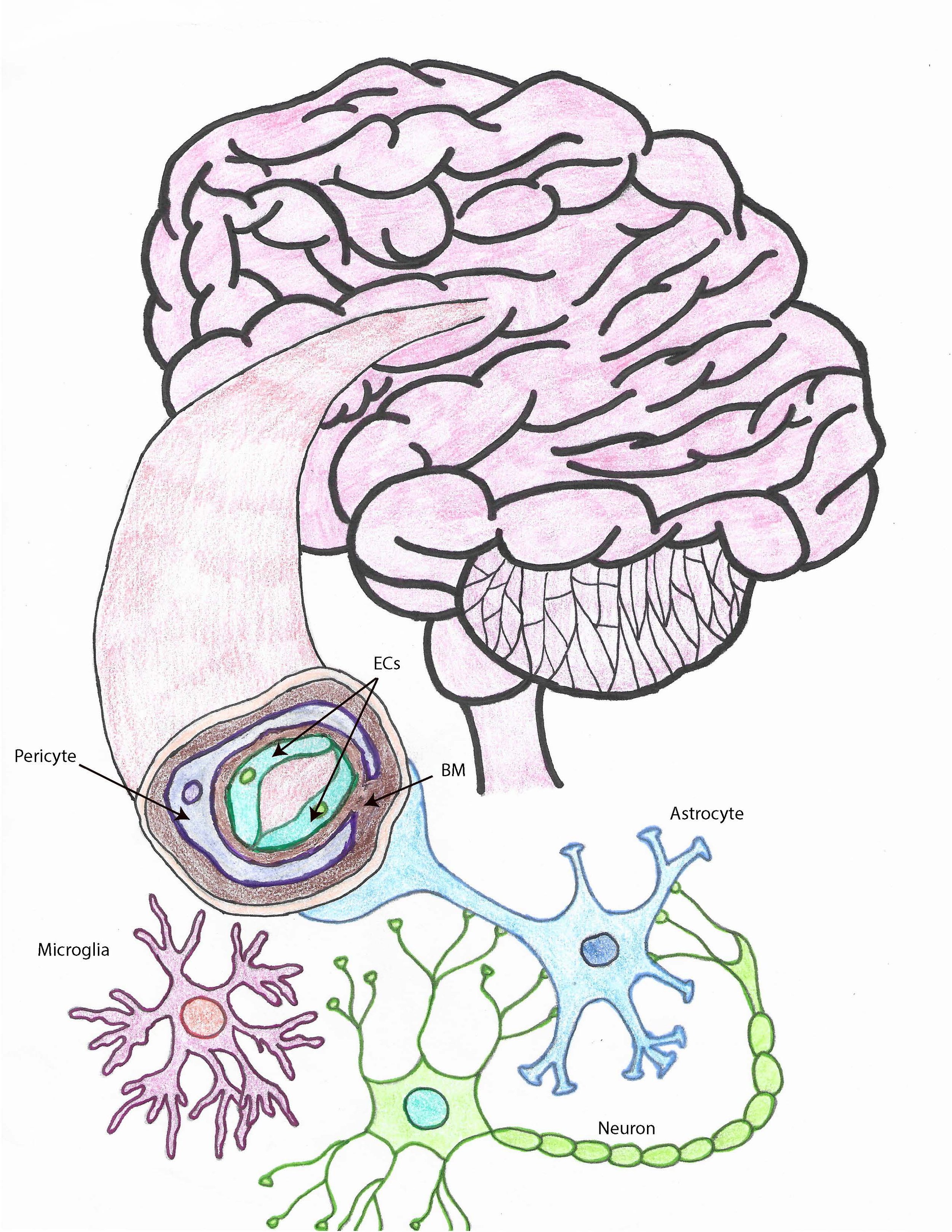Research in the Fossati lab focuses on the mechanisms underlying neurodegeneration and the molecular pathogenesis of cerebrovascular dysfunction in Alzheimer’s disease (AD), cerebral amyloid angiopathy (CAA) and related dementias. We also focus on the discovery of biofluid biomarkers for AD and other neurological and psychiatric disorders, such as traumatic brain injury (TBI), and post-traumatic stress disorder (PTSD). Our projects include the study of:
Cerebrovascular dysfunction and the impact of cardiovascular risk factors in Alzheimer’s disease (AD) and Cerebral Amyloid Angiopathy (CAA) pathology.
The involvement of mitochondrial pathways and death receptor-mediated apoptosis in Aβ-induced brain vascular cell degeneration (endothelial and smooth muscle cells)
Targeting carbonic anhydrase enzymes in AD and CAA, and therapeutic effects of carbonic anhydrase inhibitors on neurovascular function, neuroinflammation, clearance, and AD pathology.
Study of biomarkers for AD, TBI, and PTSD and related disorders.
Contact Dr. Fossati for more info.
Funding: NIH RO1s from the National Institute on Aging (NIA) and National Institute of Neurological Disorders and Stroke (NINDS), Alzheimer’s Association Research Grant (AARG), Pennsylvania Department of Health, Karen Toffler Charitable Trust, The Gerald and Emily Lemole Trust, the E.N. and D.L. Thome Memorial Foundation Award in AD Drug Discovery Research.
